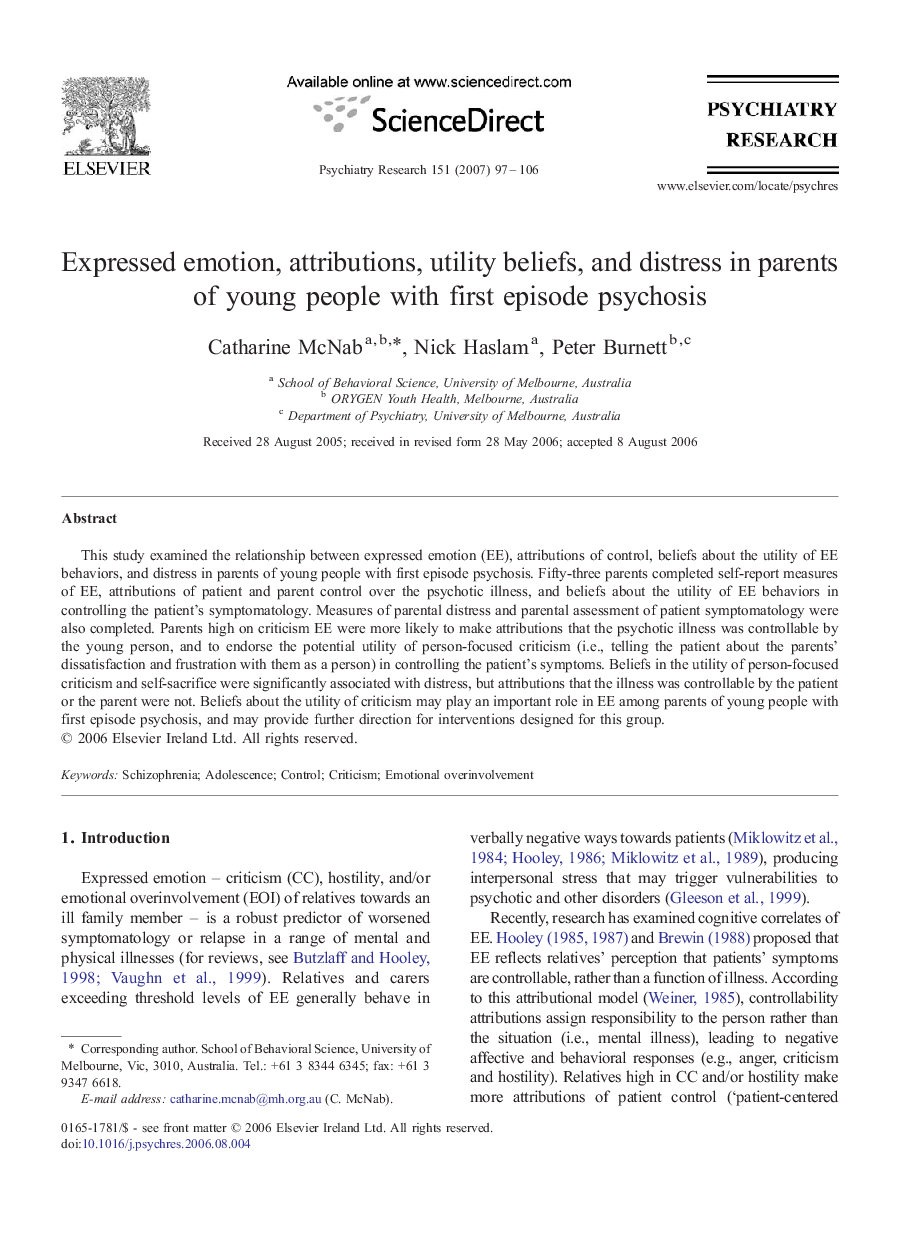| Article ID | Journal | Published Year | Pages | File Type |
|---|---|---|---|---|
| 332847 | Psychiatry Research | 2007 | 10 Pages |
This study examined the relationship between expressed emotion (EE), attributions of control, beliefs about the utility of EE behaviors, and distress in parents of young people with first episode psychosis. Fifty-three parents completed self-report measures of EE, attributions of patient and parent control over the psychotic illness, and beliefs about the utility of EE behaviors in controlling the patient's symptomatology. Measures of parental distress and parental assessment of patient symptomatology were also completed. Parents high on criticism EE were more likely to make attributions that the psychotic illness was controllable by the young person, and to endorse the potential utility of person-focused criticism (i.e., telling the patient about the parents' dissatisfaction and frustration with them as a person) in controlling the patient's symptoms. Beliefs in the utility of person-focused criticism and self-sacrifice were significantly associated with distress, but attributions that the illness was controllable by the patient or the parent were not. Beliefs about the utility of criticism may play an important role in EE among parents of young people with first episode psychosis, and may provide further direction for interventions designed for this group.
